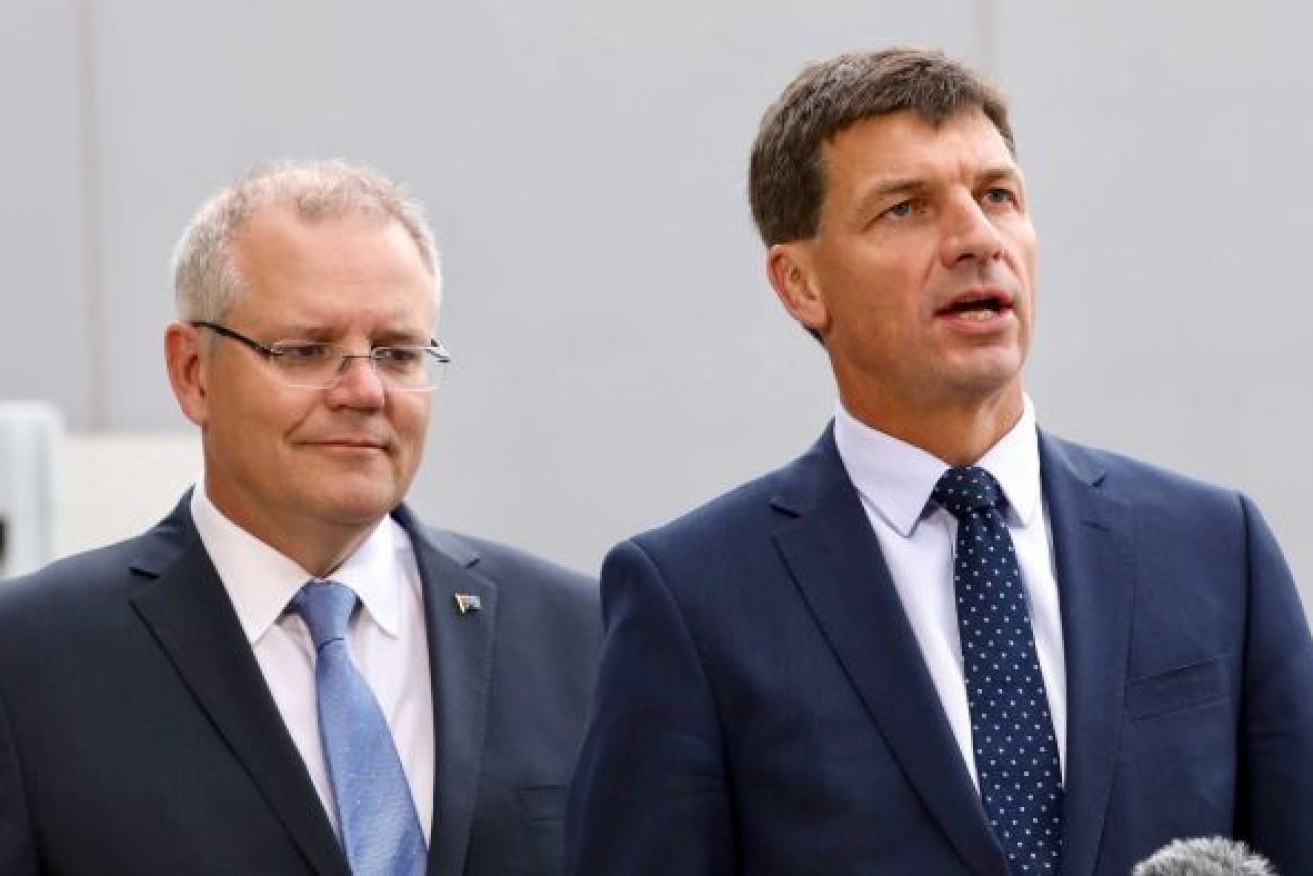35,000 Australian ‘influential figures’ caught in Chinese data harvest
A Chinese military company has amassed the personal details of more than 35,000 Australians as part of a giant global database targeting influential figures.

Angus Taylor (right) with Prime Minister Scott Morrison. (Photo: ABC)
The company with links to Beijing’s military and intelligence networks has collated profiles on 2.4 million people.
The profiles contain a range of information including birth dates, addresses, marital statuses and political leanings.
Bank records, job applications and psychological profiles have also been collected.
Australian politicians, business people and entrepreneurs are on the database.
Much of the data has been drawn from public records but some information appears to have been sourced from confidential documents, raising questions about China’s intelligence-gathering operations.
Federal Opposition frontbencher Kristina Keneally said the database was concerning and people were right to feel alarmed.
“Of course, countries have long collected intelligence but it’s important each country’s independence is respected,” she told ABC radio on Monday.
“What this highlights is that the threat of foreign interference and the capacity to amass big data sets on a population is real and we’ve got to take that threat very seriously.”
Cabinet minister Angus Taylor said the government had been boosting spending on cybersecurity to guard against online threats.
“If true, it’s concerning,” he told reporters in Sydney.
“But that is exactly why we have made a major additional investment to the cyber security of this nation, ensuring that we are secure against cyber intrusion.”
Meanwhile, new research has confirmed Chinese investment in Australia nearly halved in 2019 compared to the year before, as diplomatic tensions between the two nations reached boiling point.
The Australian National University data shows the investment decreased by more than 47 per cent, from $4.8 billion in 2018, to $2.5 billion last year.
According to the data – collated since 2014 – Chinese investment has dropped for three consecutive years since peaking at $15.8 billion in 2016.
The researchers say Chinese overseas investment was lower across the board last year, but Australia’s drop was more drastic.
Over the six years tracked, real estate received the highest proportion of Chinese investment at nearly one quarter, followed by the mining sector at 21 per cent.
Private investments from China have increased over the period, as a share of total investments.
The 2019 drop in Chinese investment featured a near halving in money towards nearly all sectors, including mining, real estate, manufacturing and a collapse of investment in agriculture.
There were modest gains in construction, education and finance.
The researchers believe China may instead be investing in emerging markets and sees Australia as a negative place to invest.
-AAP












